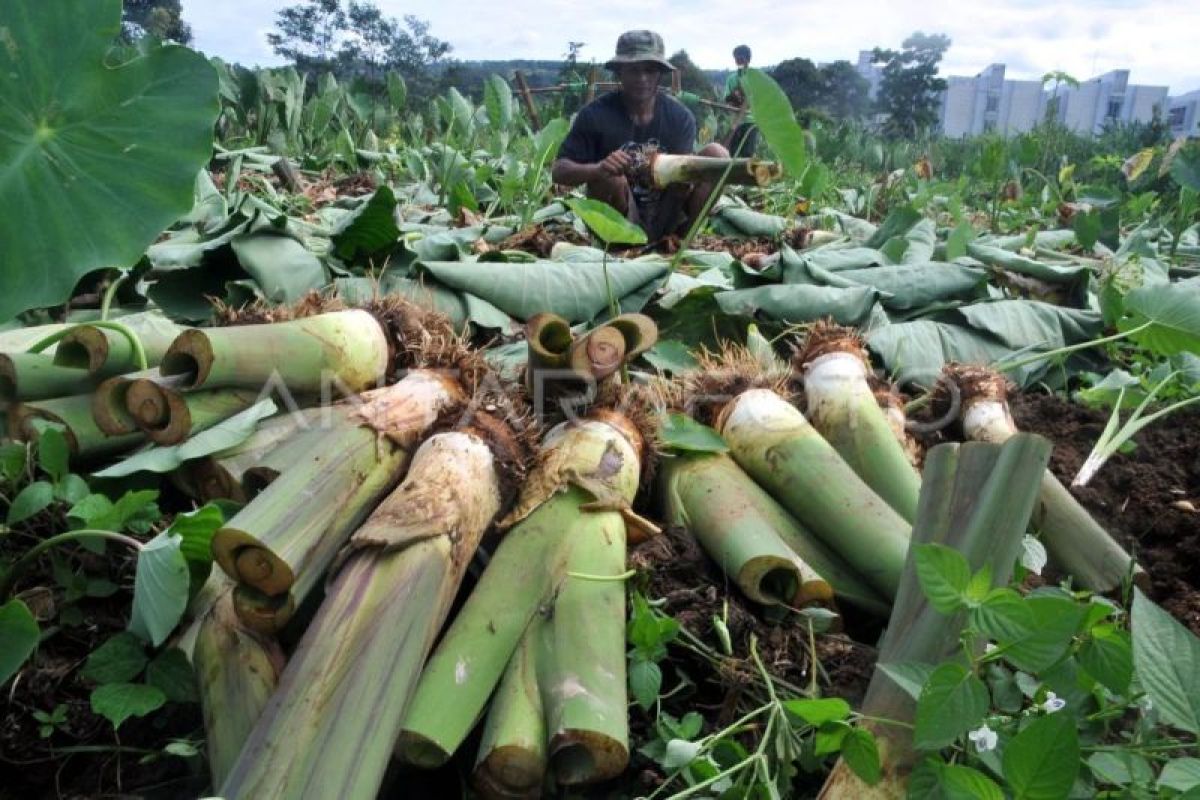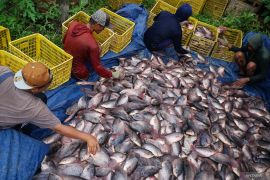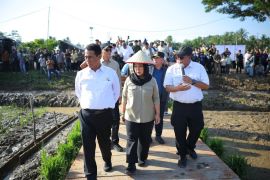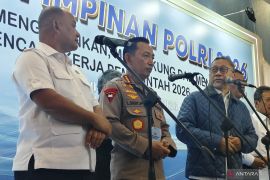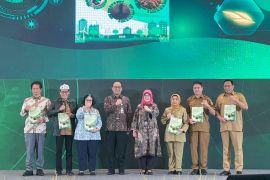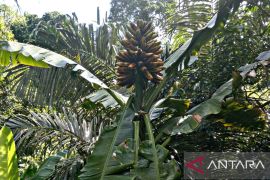The program aims to ensure food security for the local Papuan community.
The commitment demonstrated by Papuan mothers in supporting food security shows their strong desire to preserve food crops that can replace rice.
In addition to working directly on the land, Oktavina, who leads the Sorindiweri Village Women's Farmer Group, often serves as a liaison between farmers and the local government's technical services.
The geographical characteristics of Sorindiweri Village, with its abundant agricultural and fisheries resources, must be utilized to meet the needs of the local community.
Some of the garden area managed by Oktavina has been used to plant approximately 10,000 taro corms provided by the Papua provincial government.
The hectare of land is being cultivated by Oktavina and 10 members of the women's farmer group, which was formed in early 2024.
For their first planting, the women farmers rely solely on their energy and perseverance to care for the taro plants.
The Supiori District Government has devised a program to plant taro as an alternative to rice since the plant is rich in fiber, contains antioxidants, has traditional medicinal properties, serves as an ornamental plant, and is a sustainable food source.
As a source of carbohydrates, taro contains important nutrients for the body. It functions as a primary energy source and can improve overall health.
The planting of taro reflects the significant contributions of indigenous Papuan women to support the local food security program in Tanah Papua.
The initiative led by the women of Sorindiweri Village aligns with the implementation of a presidential regulation aimed at accelerating local food diversification.
This regulation is part of strategic efforts to enhance national food security sustainably.
Additionally, taro planting activities are a proactive measure by indigenous Papuan women to begin incorporating foods other than rice into their diets.
In terms of geography, Supiori poses significant natural challenges to fulfilling food security, as it is located on the edge of the Pacific Ocean and is prone to natural disasters.
With the involvement of indigenous Papuan women in taro planting, it is hoped that they will be able to meet not only Supiori's food needs but also those of the entire Biak tribe.
Consequently, Sorindiweri will serve as a pilot village for local food security initiatives in eastern Indonesia.
Data from the local agricultural service indicates that taro plants can be harvested in about seven months or more.
It is estimated that one hectare of land can produce between 5 and 10 tons of taro tubers. With the current market price of taro (Rp30,000–Rp50,000 per kilogram), farmers could potentially earn at least Rp150 million (around US$9,590.78) from a single harvest.
Sorindiweri Village is one of 38 villages in the Supiori Regency administrative area. It is located approximately 90 kilometers from the Biak Numfor District border and takes about 1.5 hours to reach from the center of Biak City by road.
The village is currently inhabited by approximately 8,105 people, the majority of whom work as farmers and fishermen.
The village, characterized by plantation land and various natural resource wealth, as well as marine resources in the form of fisheries, is contributing to efforts to provide local food in eastern Indonesia.
For the Supiori Regency regional government, the involvement of Papuan women farmer groups represents a valuable community contribution to meet local food needs.
The success rate of taro cultivation is notably high, especially since nearly all areas in Supiori Regency have fertile soil, allowing plants to thrive, including taro, which can grow in nearly all types of soil.
However, taro plants are vulnerable to pests and caterpillar attacks, which can affect their growth up to nine months after planting.
Several agricultural extension workers have noted that to control plants affected by pests or caterpillars, it is necessary to pay attention to cultural practices such as soil cultivation and the application of pest sprays.
For chemical pest control, effective insecticides can also be used.
Before managing taro cultivation, the Papuan mothers of Supiori ran a gardening business and grew vegetables such as mustard greens, kale, and chilies in family gardens.
The vegetables grown helped meet family needs and could also be sold in the market, supplementing family income by up to Rp150,000 (around US$9.59) per day.
By planting taro, their income potential will significantly increase compared to growing vegetables.
Related news: Preparing the ground for national food security
Related news: Indonesia shares food security practices with African nations
Translator: Muhsidin, Yashinta Difa
Editor: Anton Santoso
Copyright © ANTARA 2024
